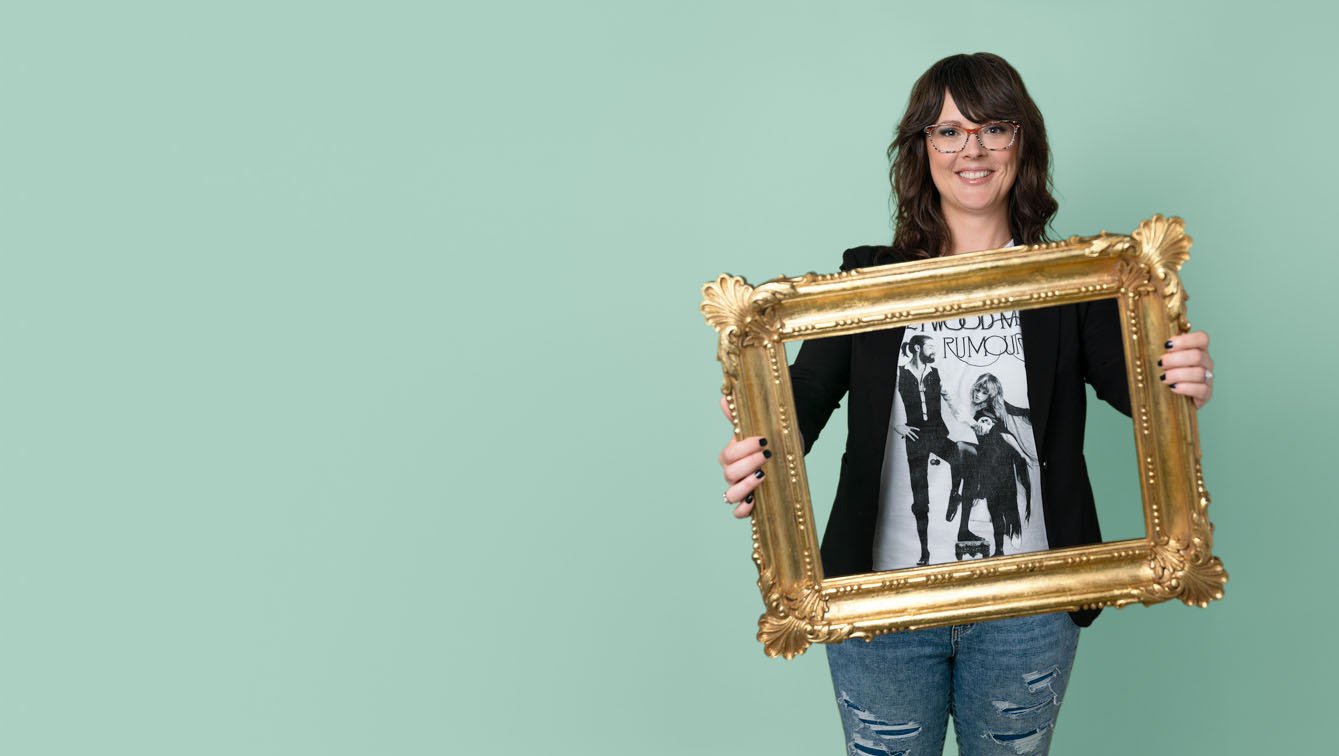The One-on-One Coaching Process
This is information describing a coaching relationship with me from start to finish, including what’s involved every step of the way to help you know what to expect and decide if coaching feels right for you.
The one-on-one coaching process as a whole is adaptable, flexible, gentle, nurturing, sometimes challenging and messy, and also follows your lead. We go where you want while I hold the guideposts on the path. At first, you might need more guideposts. Eventually, you’re able to hold your own in confidence.
It can last anywhere from a couple months to a year or more, depending on the support you need. It’s a very personalized process. No matter what though, it’s not meant to last forever. It’s meant to bring you to a place of full resourcefulness so you can move through life creating the magic you want, whenever you want. You can go through the coaching process once or return to it as needed, however, as new circumstances arise.
The coaching relationship is at the heart of the process, and my hope is that the process and seeing into it will help you feel at ease and help provide a foundation of mutual respect, trust, and safety that’s needed in a great coaching relationship.
Note: All coaches are different, even though there are many similarities. What I describe here is my own coaching process. While this can help you decide if coaching is right for you in general, be sure to understand the style and processes of each coach you’re looking at to work with before you make your decision.
Here are the steps of a long-term coaching relationship with me:
Now, let’s dive into each one.
The Free Consultation
Always start with the free consultation or discovery call. During this call, it’s important to ask any questions you might have and honestly answer any question I might have. We use this time to not only gain information needed to make decisions, but decide if we’re a good fit for one another based on the feelings that arise.
You may or may not know if coaching is even the best next step for you. Or you may wonder how coaching can help. These are all great reasons to start with the free consultation. I can help you decide and provide guidance on questions like these, tell you more about the process, the packages I offer, and we can get a feel for one another.
There’s no pressure to sign on during my free consultation. You can take time to think. I hate high pressure. It stresses me out to give or receive it, so I won’t be doing any of that. But, if you think you might want to move forward with me and just aren’t sure, the next step would be to schedule a Coffee Coaching Session.
If you do come away from the free consultation knowing you want to move forward, we can still throw in a coffee coaching session because it’s an awesome deal.
The Coffee Coaching Session
Each new client gets one coffee coaching session from me. That means, I coach you virtually for an hour in exchange for the price of a small coffee ($3.25 to be exact). You pay at the time of booking.
This is a great opportunity to experience what it’s like to be coached by me - get a feel for me and I you. Especially if you’ve never been coached before, this gives you a risk-free idea of what it’s like. This can help you decide if you want to do more and if we’re a good fit for one another.
It’s so important to ensure we’re a good fit, I love doing coffee coaching sessions. If you’re not ready, that will likely come out in this session. I’ll also be able to tell how ready you are if you are ready. If we don’t mesh, that will likely come out in this session. If we flow wonderfully, I’ll also be able to pick up on that.
And don’t worry if we don’t fit — I know a bunch of other trauma-informed and other types of coaches who I’d be happy to refer you to if you want to move forward but not with me. Likewise, if I think you should move forward but not with me, I’ll refer you then too.
You Might Also Like: How to Choose the Best Coach for Yourself
A good fit is so important because:
I don’t want either of us to waste the others’ time
Feeling safe and connected to your coach facilitates healing and growth while the opposite can really hinder it
You deserve to get the results you’re looking for
There are so many amazing, legit coaches who have beautiful gifts to offer, and maybe their gifts are more suited for you than my gifts. We’re all unique and it’s okay to celebrate that.
It may be revealed during the coffee coaching session that coaching isn’t the best next step for you after all. In that case, I would recommend a therapist or some other healing modality to start with. But, this doesn’t happen very often. So far, when people come to me for coaching, they’re ready for it, even if they’re not sure they are.
For reasons you might not be ready for coaching and other healing modalities to think about, check out: Why and When to Choose Coaching for Healing Trauma
Whether you know you want to move forward with me after the free consultation or the coffee coaching session, I’ll send you my Pricing Guide at some point near your consultation or coffee coaching session so you can look through and select your package options.
Then we move into the intake process to get you established as a client.
The Intake Process
The intake process occurs when you and I decide together that we’re a good fit and you say you definitely want to move forward. It’s a very small portion of our time together.
At this point, I send you a welcome email with a client number, a link to manage your invoicing and billing in the future, and next steps. Next steps to get started typically include a Wheel of Life exercise that takes about one minute to do and links to one or two intake forms depending on your specific situation.
The coaching package you choose determines what type of intake process you’ll have. All clients need to go through a general intake process so I can get oriented to your specific needs. However, all clients won’t go through a custom program intake, design, and review process if the package you choose doesn’t include a custom program.
For now, let’s drill down into what each intake process entails.
General Intake
All clients go through the general intake process. Sometimes, I ask you some of the questions included in the general intake during our consultation. But, what I can cover in the consultation just depends on how you show up, how many questions you have, and whether or not we need to go another direction to make sure you can have what you need to make decisions about how to move forward.
So, the general intake process really ensures I have enough information to start coaching you effectively in your first session. It lets me know foundational things like how you process information, if you have any self care practices already in place, and if you should become evoked (a.k.a. triggered) in a session, what we should do. I also ask about things like what you want to accomplish in our time together and how you will know when you’ve achieved it. This sets us up to be able to measure your progress over time.
You simply spend about 5-10 minutes answering my questions in a Google Form that I email to you. If you’ve already answered any of the questions in the form during our consultation, you can simply skip them and save yourself a little bit of time. It’s super easy and super valuable to getting started.
If you didn’t choose a package with a custom program included, you still get coaching tailored to what you need in the moment and the course of our sessions are determined more so by how you show up. But, there’s less planning in the beginning and there’s not a road map that we’ll refer to as we work your program. More on the benefits of going with a custom program or not in the Working Your Program section below.
However, the next step for you would be to review and sign the coaching agreement.
If you did choose a package with a custom program, you move onto that Google Form after you complete the general intake form.
Custom Intake Program and Review
The custom program intake form is much more in depth than the general one. It takes about 10-15 minutes to complete. In this form, I take you through many different emotions and ask you to rate how often and intensely you feel them. They range from what we typically perceive as positive emotions to negative emotions. In this, I get a feel for how well you know and trust yourself and others, plus much more.
From the answers you provide, I make a flexible map of the types of exercises I think will support you best as well as what areas to focus on during your 3 or 6 month program. Most of the time, these suggestions aren’t in order, but we’ll apply in session as different scenarios arise. None of this custom program is written in stone though. If something else reveals itself in session that calls for an exercise not listed in the plan, that’s okay. If your desired outcomes or goals change half way through the program and we need to change course, that’s okay too.
But, having this road map is helpful. Many times, you’ll come to session and not know what you want to focus on for the day. And in that case, we can refer back to your custom program and go from there.
Once I get your custom program designed, I send it to you to review with a link to schedule a custom program review session. In this session, you can ask questions about what certain exercises entail and we can make sure they feel safe. If I perceive certain strengths in you and write part of your program around that, you have a chance to address those and agree or disagree too. Ultimately, by the end of the meeting, you have an understanding of how we’ll move forward and a chance to tweak that plan. Then, I ask for your consent to go in the direction of what’s listed.
Then, we have the basis for the rest of our time together.
Coaching Agreement (aka, The Contract)
After you complete the intake process, I write up your coaching agreement based on what you told me, what you need, and also what I need. I want to make sure that our coaching relationship is a win-win for both of us, so it lays out the expectations of the relationship and who’s responsibility is what in order for our time together to be successful.
I digitally send you the agreement to review. If you agree with everything on it, then you can electronically sign it. I use Adobe Acrobat for electronic contracts and signatures, so you don’t have to do anything special aside from opening your email, reviewing the contract, filling out a little bit of personal information, and signing in all the indicated places.
If there’s anything in the contract that is inaccurate or that bothers you, you have the opportunity to let me know. Typically, I can make reasonable changes and resend it to you for signing once we’re both happy with it.
It’s important that you read and sign a coaching agreement or coaching contract for several reasons:
With me, it locks in your pricing.
The policies I have in place protect you and also protect me.
Another extremely important aspect of the contract is including an accessible emergency contact, accessible being the key word. It ensures your safety in many ways.
All of this might sound intimidating, but it’s really standard for all types of coaches. And I’m just an email or text away if you have questions about any of it while you’re going through it.
Working Your Program
Once the coaching agreement is signed, it’s time to start scheduling sessions, where you’ll start working your program! This is the bulk of our time together. Your program can be defined as everything we do in all the sessions we have together, from talking to visualization.
I know one size doesn’t fit all when you’re healing from trauma, so I don’t try to fit you into a box or timeline in the way I think you should heal. Instead, I take queues from you and we go from there. These queues and how we progress informs the entirety of your program.
For example, I do values work with most clients, but how and when that work shows up in our time together depends on how it best comes up for you, and it may look different from client to client.
Related: What to Expect in a Trauma-Informed Coaching Session
How your custom program forms and comes together can happen in a couple different ways though.
You will either be working a custom program that we design upfront or we’ll be tailoring your program to you as we go, depending on what coaching package you choose. I set up program this way to give you the utmost flexibility in how you want to proceed and to work with all budget types.
Related: Coaching Packages
Regardless, there are commonalities that would occur as we work together, either way. For example, I continually check in with you over the course of your program to make sure I still have your consent and we’re going in the direction you want to go.
The primary difference between designing upfront or just coming up with it as we go is efficiency and planning. When we design your program upfront, we have a roadmap that I’ve given my insight into based on an an in depth intake process. Then, you have a chance to add to it or change things about it and then consent to what’s in the program.
This helps us work more efficiently in each session and sets us up for progress without having to decide in every session what to talk about because we already have a roadmap that we’ve both decided on. It provides structure for keeping us on track and benchmarks for your progress. It’s about efficiency, priming for progress, and also, can be available if your budget allows it. Of course there is flexibility built into this, but structure is too.
If you prefer to feel things out as you go because you’re not sure how you might feel or what you might need from minute to minute or day to day, we don’t have to lay out a detailed road map. You might not want a roadmap at first because maybe you rebel against structure. Or perhaps you have a smaller budget.
There is no wrong way to go. It’s just a matter of preference and how you want to be supported.
When it comes to my preference, I like designing custom programs upfront. I find that many clients come to each session not knowing what they want to focus on or what would help them heal or progress in that moment. Having a custom program already laid out enables us to refer back to what we’ve already agreed on and make quick work of getting started in session. At anytime, a custom program can be renegotiated if your goals or focus needs to change, but they’re high level enough that typically they don’t need to.
But, I can also see the value in spending more time in each session exploring what’s needed to heal and progress before we start working on it. We can do this as needed if you have a custom program in place, but if you don’t, we’ll be doing this in every session. We’ll spend more time in each session identifying what to focus on for that session and spending more time checking in during portions of sessions to ensure we’re on the right track and you’re progressing.
Ultimately, I do want you to choose what would work best for you and your budget, and I can adapt.
Wrapping Up Our Time Together
We’ll wrap up our time together in a way that honors all the progress you’ve made and celebrates who you are.
But how do we know when you’re ready to stop being coached?
Remember the intake process? During that, you would have identified what you want to accomplish in our time together and how you’ll know when you’ve achieved it. We’ll know it’s time to wrap up coaching when everything you identified as an indicator letting you know you achieved your desired outcomes are present.
Additionally, you’ll feel resourceful, capable, and worthy. You find meaning in your experiences. And, you’re able to employ the techniques we've been practicing over the entirety of your program without my help.
When you choose coaching with me, you’re typically on a trauma-informed life coaching path or a trauma recovery path. Depending on your path, there will also be other indicators that tell me you’re doing just that — accessing your inner resourcefulness and practicing what you’ve learned successfully.
Trauma-Informed Life Coaching Success Indicators
On this path, indicators letting me know you’re ready to move on from coaching include but aren’t limited to things like:
You listen to your mind, body, and spirit as a whole
Achieving goal after goal
Having a system in place that works for you to move forward toward your goals
Ability to identify aligned, fulfilling goals based on a knowing, respect, and love of yourself
Feeling more connected and like your relationships are improving
Ability to make decisions without dread
And many more — but ultimately you’re living in the present and that’s informing a healthy future.
Related: Keep Moving Forward with Trauma-Informed Life Coaching
Trauma Recovery Coaching Success Indicators
On this path, indicators letting me know you’re ready to move on from coaching include but aren't limited to things like:
Embracing wellness and taking care of yourself
No longer stuck in a victim mentality or in cycles of shame, blame, and guilt
You have hope
You have a desire for post traumatic growth and have the energy to start setting goals that are above and beyond surviving and healing, but are more about thriving
You want to give back or help the world in some way
Your mind, body, and spirit are working together now
You’ve created new, healthy habits that are sticking
And many more — but ultimately, you know how to regulate before reacting, tolerate emotions, self soothe, and have mastered healing your trauma, so that no matter what comes up in the process moving forward, you have the tools to deal.
Related: Calm the Chaos with Trauma Recovery Coaching
Next Steps
One of two scenarios have happened when it’s time to move onto next steps.
You’ve either accomplished what you’ve set out to accomplish by the end of your program, or your program has come to an end before you feel completely ready to be done with coaching.
Let’s break down what next steps could look like for both scenarios, starting with the latter.
After You've Accomplished Your Program Goals
Once you feel completely resourceful, can self regulate, and have achieved your desired outcomes you will feel capable of continuing to master the healing of trauma without a coach, at least for a time or maybe forever. As usual, that highly depends on who you are and how your journey looks. But, in general, you will have realized your capabilities, processed what you needed to process, integrated what you needed to integrate, and have been able to make positive changes in your life based on those integrations. You’ll feel like you’re moving forward and have the resources within to deal with any future processing, integration, and/or goals that may arise.
We’ll spend a lot of time celebrating your progress in your last session and hopefully keep in touch via social media or otherwise. I love to keep in touch and see how you’re doing.
You might decide you still want minimal support and accountability to accomplish post traumatic growth goals. In that case, I have a subscription plan where we’d meet monthly and I’d coach you on your goals. You must have graduated a program for this option to be available.
What You Can Do If Coaching Ends Before You're Ready
Let’s say you need to be coached for about six months, but you only purchased three months worth of sessions. Or perhaps you signed on for a six month package, and we work the whole thing, but during that time you had huge breakthroughs where the new information created new goals and dreams for you. At that point, you realize you have a different level of healing to do and that more coaching would be helpful. These are examples of reasons why your coaching might end before you’re ready.
We’ll likely see these things coming. If at any point we realize we need more time, we can decide together how to move forward. Extending your program is always an option. I’d recommend signing up for another package where you can get the hands on support and accountability you need.
There are also other educational and mindfulness resources that will be available from time to time that you can take advantage of as well.
Of course, it’s totally up to you and what you think would help you most.
Your Success Depends On You
Ultimately, you get out of a coaching process what you put into it. We do intense, internal work in session, but that work flows over into your everyday life where you apply what you’ve learned about yourself and make choices that give you the life and results you want. You’ll also end up processing some of our discussions and exercises long after each session is over, finding healing on your own time.
Whatever you decide to do with what you learn and create for yourself, I’ll be your support and partner in co-creation, rooting for you the whole way.
Questions or Comments?
Feel free to let me know if you have any questions in the comments, or you can schedule a free consultation.
Related Posts
Hey there!
I’m Brandi Fleck, TICC. I’m a private practice, certified trauma-informed life coach and trauma recovery coach. All genders, sexualities, and races are welcome here. I primarily serve clients via one-on-one coaching and self-paced trauma education.
Find More on the Blog
Topic
- C-PTSD
- PTSD
- acceptance
- accountability
- action
- agency
- anxiety
- awareness
- behaviors
- body
- books
- burn out
- calm
- coach specialization
- coaching approach
- coaching fit
- coaching framework
- coaching style
- compassion
- control
- coping
- courses
- credentials
- crystals
- diy
- emotional regulation
- executive function
- expectations
- fear
- fibromyalgia
- flow
- getting started
- gifts
- goal setting
- goals
- grief
- gun violence
- habits
- healing
- healing modalities
- holding space
- holistic
- hope
- how to
- inspiration
- intake process
- intuition
- knowing yourself
- lifestyle
- mental healthcare
Recent Posts


















